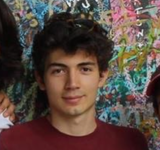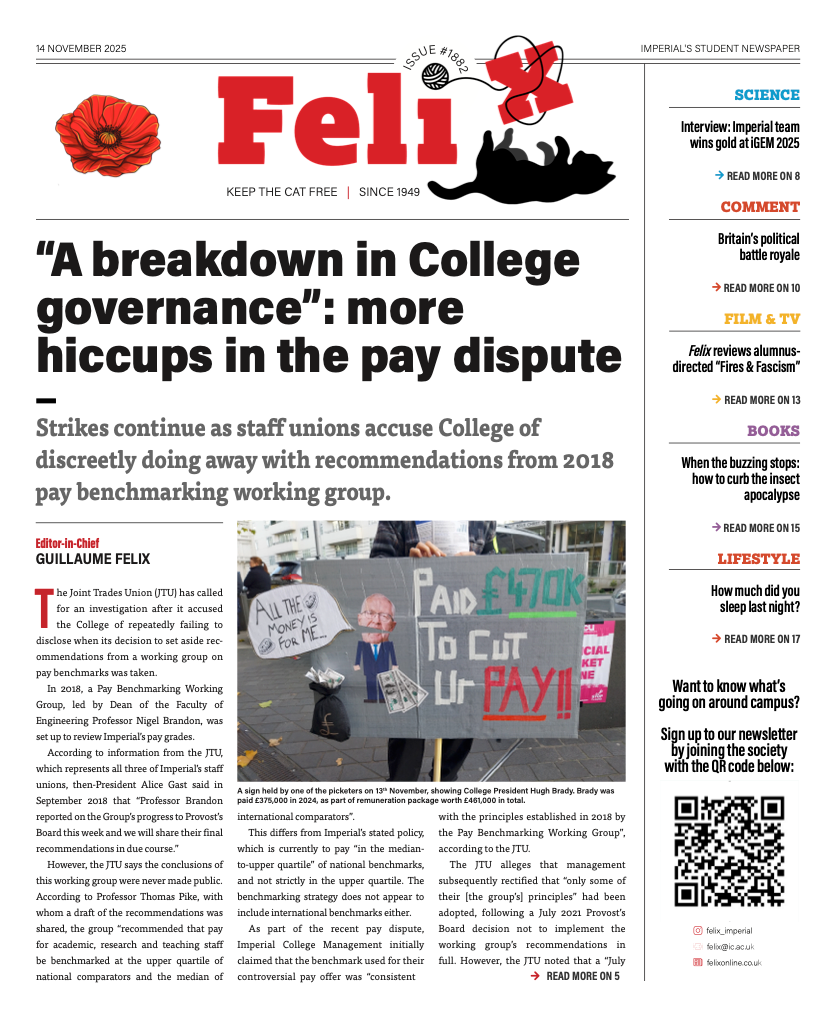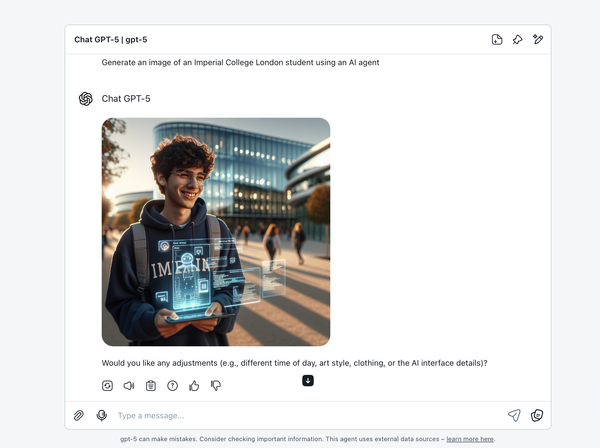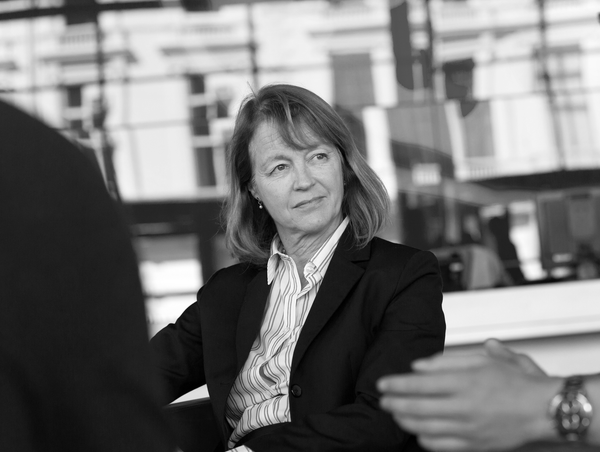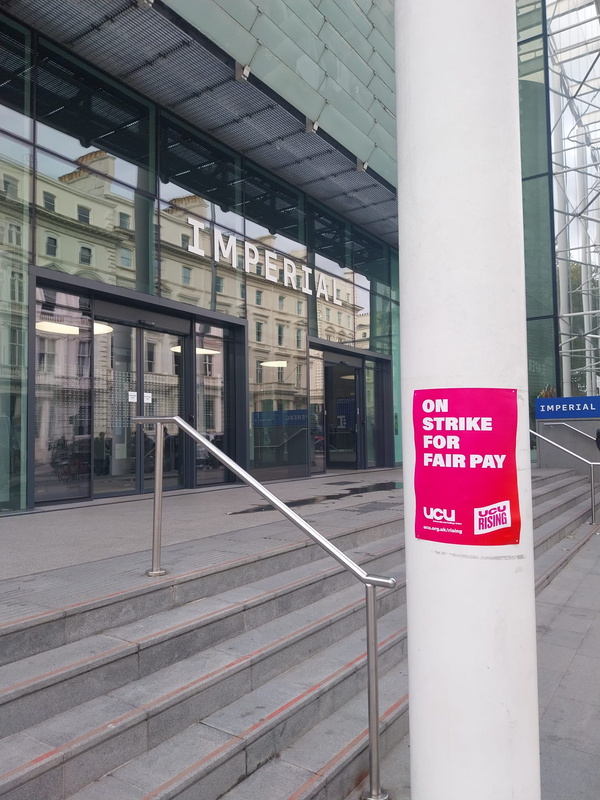OT Interviews: Anson To, Deputy President for Welfare
The former LGBTQ+ officer discusses affordability, tailored therapy and advocacy.
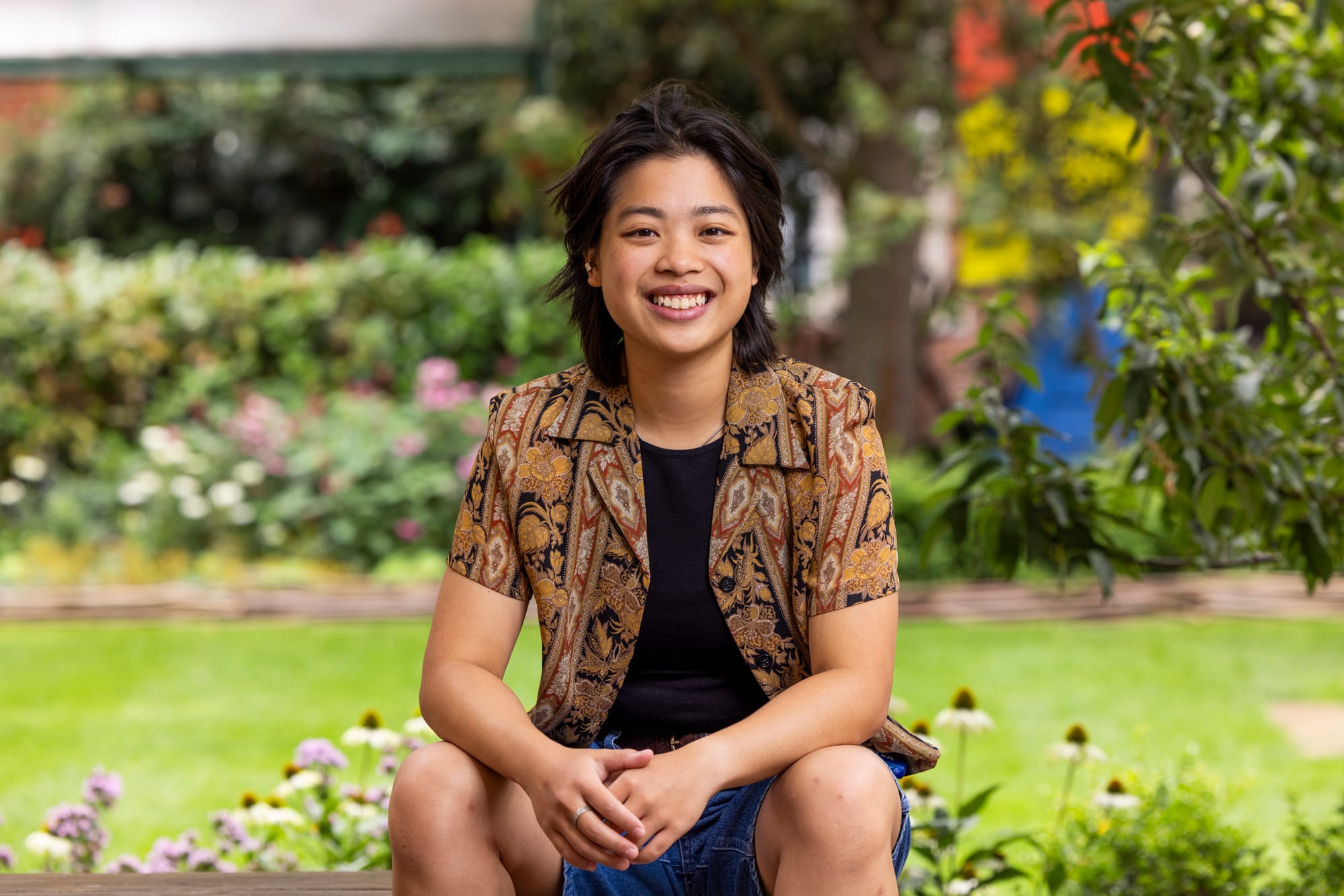
"I am going on a ramble now,” Anson warns me as we start discussing metal health policy, “because this is something that’s always in my brain. I like thinking about it, but I don’t think I ever reached a solid conclusion.”
From the beginning, I can feel Anson is passionate about their work – their answers reveal the stream of consciousness of a fervent advocate. Last year, in addition to serving as the Bioengineering wellbeing representative, Anson was elected as the Union’s LGBTQ+ liberation officer. “It’s a ‘complaining and then make an impact’ kind of role,” they tell me. “So I really enjoyed that.”
Anson then decided to “look at the bigger picture” and eyed the role of Deputy President (Welfare). “One of the main reasons [for running] was that I wanted to make good use of the privilege I have, and work on addressing the issues I’ve seen affect my friends at Imperial,” Anson shares after the interview. “It’s something I’ve seen or experienced and I feel connected to these causes.” Running unopposed, they won with a manifesto that focused on affordability and student support.
This starts with a unified, coordinated and responsive welfare support system, at every level. Anson emphasises the importance of communication for the role, be it through the WhatsApp groupchats they organise with reps, or through direct contact with students. “I want to be approachable. I hope I am approachable so people can just come up to me and be like, ‘Hi, this is happening – what can I do?’ And I’d be more than happy to help them.”
Anson campaigned on promises to lower food costs for students, with a focus on the introduction of a greater choice of affordable, filling foods at campus eateries. “I’m dedicated to talking about how they can work towards bringing value for money food while also not losing on the food quality.”
This could be achieved via a food subscription, allowing the College to better estimate the number of consumers on a given day, and make economies that can translate to retail price cuts.
Expanding the “savers menu” options, which encompass simple and affordable items, is another way to lower food costs. “I’m not saying that they should take out the premium options, or bring those prices down and lose quality on those premium options,” Anson explains. “But we can have soup, or lentils, curry… Personally, one of my favourite staple meals is tomato-egg stir fry.” That way, students looking to save can enjoy more than “just soup and burrito for like five days in a row,” the status quo.
Anson isn’t convinced that the freshly arrived Pret is very “student friendly,” either: “I personally believe it should be Greg’s, I can’t lie,” they confess.
Their manifesto also pushed for improving the College’s welfare support, under the beautifully alliterated slogan “Strengthen Student Support Services” (such talent could be used at Felix, but unfortunately I doubt Anson has the time.)
Anson recognises that therapy is not one-size-fits-all, and is keen on reinforcing what they call “culturally sensitive counselling.” They tell me of a scene from the Netflix TV series Beef, in which characters discuss how a “Western” style of therapy is less effective with members of the East-Southeast Asian (ESEA) diaspora. “That really seemed to hit,” recalls Anson.
“People seem to be more open talking about mental health as we look across the generations, but if we look at how that differs across cultures and ethnicities, I think from my observation there is definitely a difference.” Anson would therefore like for cultural sensitivity to be “a requirement in the job description of people that they [ICU] are hiring.”
And in spite of progress, shame and fear of judgment remain barriers to those seeking help. “I think there are layers in which we can look at stigma. Stigma within ourselves – are we happy with thinking about mental health or looking up something about mental health? And the second layer – am I comfortable talking to my family or peers about mental health? ... And if there’s also stigma and misunderstanding around, say, ‘If I have this on the record, or if I take a year out from my studies for my mental health, is my employer going to know? Is my employer not going to hire me for it?’”
On the subject of employment, I ask Anson what they would see themselves doing when the year is over. “I am having an existential crisis,” Anson reflects, relatably. They interned as a technician at the London International Festival of Theatre, and have “quite seriously” considered working as a lighting designer or technician. “I definitely want to make an impact in what I do,” they conclude, “to keep working on advocacy-related work.” What better medium than theatre?

